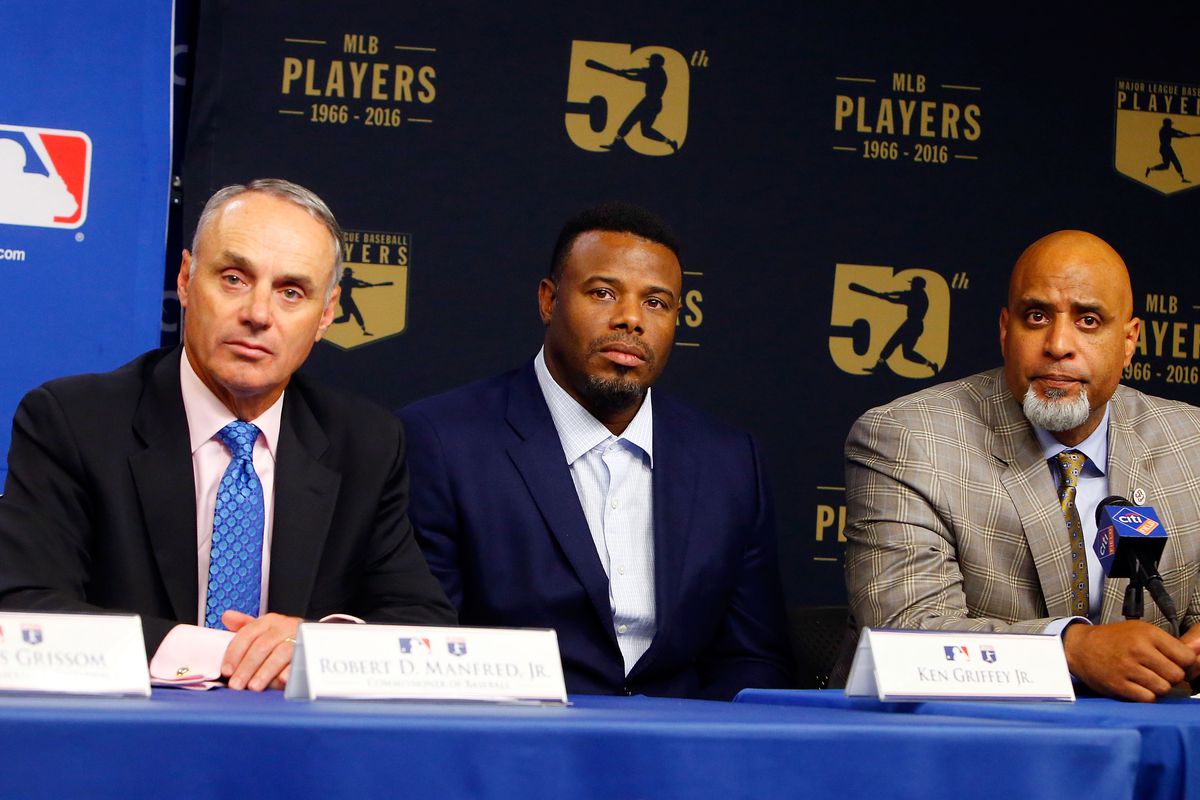
There’s a stronger chance than ever that there will be a shortened MLB season in 2022 after the owners and MLBPA had a tense and unproductive day of negotiations on Saturday in Jupiter, Florida. Union sources indicated to multiple reporters, including the Washington Post’s Chelsea Janes, that the players were considering cutting off negotiations after the league reacted unfavorably to a union proposal on Saturday, but the two sides ultimately decided to meet again on Sunday afternoon — their seventh straight day of in-person negotiations. While the fact that they’re still talking is somewhat encouraging, it’s realistically very improbable that they’ll be able to reach a compromise before the end of business on Monday, which is the league’s self-imposed deadline to reach a deal and play a full 162-game season:
Players are currently considering walking away from the table, per a person familiar with their plans. Made what they felt was a substantive offer and owners rejected it. Players furious.
— Chelsea Janes (@chelsea_janes) February 26, 2022
MLB and the MLBPA will meet at 1 p.m. ET tomorrow.
— Jeff Passan (@JeffPassan) February 27, 2022
The union backed off significantly on one of the hot-button issues it’s been pushing this offseason in a comprehensive proposal on Saturday, agreeing to cut its request for the percentage of players with between two and three years of service time who are eligible for arbitration from 75 to 35. MLB, however, has continually indicated that the “super two” issue is one that is off limits in CBA negotiations and did not interpret the union’s change in approach as a legitimate concession.
The union also agreed to cut $2 million off its previous competitive-balance tax threshold proposals in three different years.
The league made a counter-offer hours later and largely stuck to its guns, only cutting $1 million off its competitive-balance threshold proposal in 2023 and keeping the rest of its proposed CBT numbers — which do not increase in line with projected revenue growth and inflation and are accompanied by significantly increased luxury-tax penalties — the same. It also agreed to drop the first tier of its proposed luxury-tax penalties from a 50% payment on the overages to 45%.
The league refused to move closer to the players’ proposal for a draft lottery without the union agreeing to an expanded 14-team playoff, and it also requested the ability to unilaterally institute on-field changes with 45 days’ notice, rather than the one year it currently possesses.
MLBPA dropped its request for arbitration eligibility expansion from 75 percent of players with 2-3 years of service time to 35 percent. MLB doesn’t want to expand it at all from current 22. No change to minimum salary or prearbitration bonus pool proposals for either side.
— Evan Drellich (@EvanDrellich) February 26, 2022
MLB’s proposed CBT first tiers
— Evan Drellich (@EvanDrellich) February 26, 2022
2022: 214m (same as previous)
2023: 215m (increase of $1m)
2024: 216m (same as previous)
2025: 218m (same as previous)
2026: 222m (same as previous)
Another item from today: League reiterated that it wants to shorten the window to unilaterally implement on-field changes to 45 days of notice instead of the one year it presently possesses. The proposal, as @EvanDrellich and @Ken_Rosenthal said, was not received well by players.
— Jeff Passan (@JeffPassan) February 26, 2022
The owners’ unwillingness to adjust its stance on issues important to the union was received very unfavorably by the players, and it seems as if any momentum that may have been created during the week is now lost. There’s still about 48 hours for the two sides to work things out before the integrity of the season is seriously damaged — and it still may be damaged regardless, considering hundreds of free agents and players on the trade block don’t really know where they’ll be playing this year — but the odds of a quick agreement certainly don’t look good as we approach the deadline.

Loading comments...